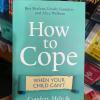Dear fellow high-school students and teachers,
Why does everyone in the school systems of the United States seem to be itching for their next vacation? Schools are places of enlightenment and learning – are these things something to dread, something from which to run away and hide? I believe that students and teachers do not dread learning and teaching at all, but instead dread the stress of grades and tests - things of utmost importance to each student and teacher. These are the stresses from which students and teachers continually want a vacation. No one wants to stop learning. It is human nature to want to learn and to be curious. I, as a sophomore in high-school, believe that schools have strayed and continue to stray from what is most important: learning and teaching. Other pursuits have stepped in the way of true progress, and I fear that this is leading to the compromising of each student’s own growth and education.
Though it may seem intuitive enough to assume that students like myself go to school day after day to learn and become educated, many students have resigned to an unfortunate presupposition that school is more about earning high honors than actually learning material. In other words, students these days do not go to school in pursuit of knowledge and enlightenment, but rather they go in pursuit of high grades and test scores to ensure a future career. Math class has become about obtaining a high grade. Learning math is secondary to this. At first thought, I wonder why this is. It seems obvious that something is wrong – but then the problem becomes obvious.
People, it seems, have come to believe that the search for knowledge is impractical and ethereal compared to the latter pursuit of high academic honors, and therefore, it is deemed useless. Grades are much heavier anchors that secure students' futures much better than knowledge, or so we have all been convinced. Despite this unfortunate mentality that abounds in modern society, the first focus of students and teachers should be on purely learning and enabling learning by teaching. Obtaining titular honors such as high GPA’s, impressive standardized test scores, and good looking grade-transcripts should be secondary goals, because, unlike pursuing knowledge, obtaining these things often does not bring fulfillment, meaning, and happiness.
Resistance may come when students and teachers are told to prioritize learning and enabling learning above raising GPA’s and class scores. Any suggestion that encourages reevaluating priorities may be met with an accusation of not living in the real world of college admissions and test scores. My fellow students may argue that focusing on learning is not practical in this era - that colleges accept incoming high school students not based on how much they learn, but on how their GPA’s and test scores look. Some teachers may argue that raising class scores must be their first priority in order to improve their pay and successfully help students reach college-education. People might say that students do not want to learn, and that the only way for students to progress is to motivate them with the rewards that come with good grades and test scores. Some people may even argue that school these days just is not for learning anymore - it is simply and solely for being accepted into a good college in order to be hired into a good career. At first glance, all these arguments seem reasonable in my opinion. It is true that colleges do look at test scores and grade-point averages, and do not look at necessarily how much a student has learned in order to determine the admissibility of their applicants; it is true that the rewards for stellar GPA’s and high class scores can be good incentives to motivate students, teachers, and schools to perform well; it is even true that a very important purpose of high schools is preparing students for good colleges and good careers. However, I still believe there is a better way that lets students and teachers establish their current and future careers that does not compromise true education.
Despite the reasonable concern about raising our level of performance in order to have impressive transcripts, there is a different path that educators and students can take - one that includes high scores and grades while not sacrificing the joy that can be found in learning. Educators and students must first focus on teaching and learning. If educators and students set their priorities straight, then academic-successes (like desirable test scores) would come more naturally, students and teachers would experience increased feelings of fulfillment, and the state of our schools would be one of purpose. It would be reasonable to focus our efforts in a direction that would naturally bring more success than our current method of overemphasizing academic honors. Based on my experiences as a subject of this current method, I believe that earning high grades is unnatural when learning of a particular subject is prioritized below obtaining a high grade.
The dilemma of this situation is how educators and students would go about redirecting their efforts when GPA’s and transcripts simply seem too vital from which to withhold attention. People also do not realize the benefits that focusing on true education can bring. Students are justifiably stressed in our day, and while suddenly disregarding GPA’s, tests, and college admissions sounds great, it would be unrealistic. Therefore, students do place a reasonable amount of importance on performing well in schools. It would be wrong to disregard their struggles to obtain good grades and scores as trivial. They dwell for an innumerable amount of hours in schools where they face constant pressure to perform their best so that they can go to a college or university in order to ensure themselves a decent future. In fact, it is hard to understate how important student performance in high school is in college and university admissions.
According to the National Association for College Admission Counseling’s 2011 State of College report, the top four factors in determining admission of students for most colleges are the quality of grades in college-prep courses which they achieve, the strength of the curriculum which the student takes, the scores the students receive on college admission tests, and the quality of grades (GPA) of the student in all courses ^1. All these things, in order to impress colleges, depend on exceptional student performance. While learning things may be part of the means to produce any of these ends, none of these four expectations explicitly encourage students to learn for the sake of learning. They do, however, lead to stressful environments that make learning and educating more difficult. Students are taught early on to get good grades and work hard in school in order to be accepted to a college that will prepare them for a lucrative career. They are encouraged to follow an ideal life-plan of hard work, good grades, and a well paying career, but not necessarily to learn and to become truly educated. In order to combat the world that students live in, students themselves, as well as educators, need not to do away with any goals of attaining high honors, but rather simply need to make learning their first priority. They need to refocus their priorities on learning things and being curious, which is not stressful in and of itself. In order to do this, they would need to go against the way society has come to view learning. Students need to consciously make learning for the sake of learning a priority, and when they do this, learning will no longer be hard work, but rather it will be enjoyable. We, as members of the education system, need to make the jump and change our attitude.
We also need to stop associating learning with hard work. We have done this long enough. The act of learning things for the sake of learning things is one of the most underrated actions in modern days. “Hard work,” though an honorable endeavor, is placed above simply learning in terms of worth in today’s society, especially in the schools. Peter Gray, a Ph.D. at Boston college who has extensively studied educational and developmental psychology, stated that schools in their development throughout history “gradually replaced fieldwork, factory work, and domestic chores as the child’s primary job. Just as adults put in their 8-hour day at their place of employment, children today put in their 6-hour day at school, plus another hour or more of homework, and often more hours of lessons outside of school. Over time, children’s lives have become increasingly defined and structured by the school curriculum. Children now are almost universally identified by their grade in school, much as adults are identified by their job or career. Schools today are much less harsh than they were, but certain premises about the nature of learning remain unchanged: Learning is hard work; it is something that children must be forced to do.” He goes on to say that the “teacher says, ‘you must do your work and then you can play.’ Clearly, according to this message, work, which encompasses all of school learning, is something that one does not want to do but must; and play, which is [defined as] everything that one wants to do, has relatively little value” ^2. The association of the act of learning with stress, tests, and hard work prevails mightily in our schools. This association leads to a lack of motivation to learn and increased stress in attaining high grades. After all, when students like myself are constantly labeled by our grades, there is a lot of pressure to obtain good grades! Furthermore, this association is obviously a hindrance to finding joy in learning. Learning must not be associated with stress and exertion as it is in our day and age. We can disassociate learning and stress by first prioritizing education. This will work because the “work” of earning high grades and obtaining impressive transcripts will become more natural and easy to accomplish.
If we understand that learning is good for us and enjoyable, we will realize that learning and teaching brings joy – it will alleviate stress. Focusing on learning new things, rather than earning good grades, brings fulfillment and happiness in the school systems. Vanessa King, an author and psychology expert on finding happiness, explains that our happiness and well-being depend on learning new things ^3. I believe it follows also that as teachers help students learn new things, they will take part in this joy. Additionally, Dr. Manfred Spitzer, who teaches psychiatry and has researched extensively at Harvard and Stanford, concludes that learning and happiness are inseparably connected. He says, “answers to the question of happiness can be found precisely where you would least expect them: in learning!” He goes on to say, that from “a neurobiological point of view, describing school as ‘the serious side of life’ is, therefore, rather misguided” ^4. In contrast to the joyful emotions that learning new things can bring into people’s lives, Joseph Holtgreive, who works in Northwest University’s McCormick School of Engineering’s office of personal development as an assistant dean and director, argues that overemphasis of earning a high GPA is counterproductive and shows the unhappiness that comes from a lack of focus on learning for enjoyment. He recites an experience with a college student that came to him with a desire to drop a class because of the workload required to receive an “A”, despite her high interest in the class’s subject. Thus, she felt pressured to drop out of a class that she was interested in and to sacrifice joy that could have come from learning new things because of the stress and pressure that the struggle to earn a good GPA brought. After witnessing this unfortunate event, Mr. Holtgreive concludes that students “are simply focusing their attention on the wrong outcome. It’s understandable why so much emphasis is placed on the measurement of their performance, GPA. Without an exceptional record in high school, their chances of getting accepted into an elite university are slim. With so much at stake, they can’t afford to not focus on reaching the main goal. Yet while these students think they’re keeping their eyes on the ball, they are actually just staring at the scoreboard” ^5. Truly, students risk losing happiness when they do not set their priorities straight, and teachers risk making their student’s lives less enjoyable when their first focus is on class scores rather than trying to let students learn their class’s material. Furthermore, as Holtgreive concludes, it seems focusing so much on grades can ironically lead to worse grades. Learning must not be one of many means to earn good grades, but it must be performed independently from any other goals. People need to learn for the sake of learning because it will bring happiness to their lives. People in the school systems must first and foremost encourage learning.
I believe that focusing on learning would make school easier, and I am not the only that does. Dr. Scott Gaier, an Associate Professor of Higher education and director of Academic Enrichment Center at Taylor University, encourages a mindset of growth and development because this encourages learning (which of course would in turn lead to better grades). He stated that “our research found that students who were succeeding academically possessed certain dispositions towards learning.” He quotes Carol S. Dweck, a professor of psychology at Stanford University, as stating that our mindset, or our outlook, really can determine the results we attain. According to him, a mindset of wanting to learn and increase in knowledge in our schools would lead to more progress and increased academic achievement, because this type of mindset is progress-oriented ^6.According to this, any fear that a student or teacher would have of focusing more on learning than attaining high marks can be put to rest because a focus on learning would naturally lead to high academic marks. Furthermore, Joseph Holtgreive, in the previously mentioned article, explains that if “the goal [of a student] is to be smart, the formula is reduced to maximizing grades while minimizing effort. When the goal is to learn, the formula becomes about maximizing learning while optimizing effort. The more effective their effort, the more they can learn” ^5. In addition to bringing happiness and fulfillment, focusing first on learning and enabling learning in the school systems would, as a natural and less stressful result, lead to better test scores and GPA’s among schools’ students. Is not this, after all, what so many students and teachers are worried about? Of course, however, students and teachers would have to consciously choose to want to learn, especially when a subject just does not seem interesting. Furthermore, teachers would have to consciously look at their job as one of enabling learning rather than enabling good grades. If students and teachers were to do these things, they would learn and teach more effectively because of the resulting mindset that they would acquire. The good news is that, I believe, this change in attitude is not far-fetched. It can happen. Academic achievement would flow more naturally from making it a goal to learn because students’ efforts would be put forth with more efficiency. As students learn and study with increased efficiency, they would continue in their progress-oriented mindset of learning which would finally lead to increased happiness and better grades.
Does any teacher not want more efficiency and happiness in our school system? That would be ludicrous. Every student and teacher wants their job to be easier while also being more enjoyable. This essay is a call to action - action that would bring to pass true meaning in our schools. I would like to enjoy the nine months out of the year that I spend at school more than I do now. If educators and students alike were to prioritize the noble pursuit of knowledge and learning rather than the seemingly meaningless pursuit of good grades, then all people would undoubtedly benefit. The pursuit of knowledge is that pursuit of happiness to which we as humans are entitled. All members of society, not just teachers and students - all members of society would benefit from the educated and learned people that would start to come forth out of our education system into the workforce. Students would benefit, teachers would benefit, parents would benefit, and communities would benefit. Knowledge is power, and we can choose a future of abounding opportunity and growth, or we can choose a future of continued dread and staleness. What kind of future do we want?
Sincerely,
Matthew McMurray
A high-school sophomore
References:
1. Clinedinst, Melissa E. 2011 State of College Admission. National Association for College Admission Counseling, 2011.
2. Gray, Peter. “A Brief History of Education.” Psychology Today. Sussex Publishers, LLC, 20 August 2008, https://www.psychologytoday.com/blog/freedom-learn/200808/brief-history-..., Accessed 26 February 2017.
3. Psychologies. “Want to be happier? Learn something new.” Psychologies. Psychologies, 27 June 2015, https://www.psychologies.co.uk/want-be-happier-learn-something-new, Accessed 26 February 2017
4. Spitzer, Manfred. “Learning Brings Happiness.” Humboldt Kosmos. Alexander von Humboldt-Stiftung/Foundation, 2011, https://www.humboldt-foundation.de/web/kosmos-cover-story-97-3.html, Accessed 26 February 2017.
5. Holtgreive, Joseph. “To Smart to Fail?” Inside Higher Ed. Inside Higher Ed, 16 August 2016, https://www.insidehighered.com/views/2016/08/16/students-focus-too-much-..., Accessed 26 February 2017.
6. Gaier, Scott. “A Mindset for Learning: The Dispositions of Academically Successful Students.” The Scholarly Teacher. International Teaching Learning Cooperative, 9 July 2015, http://scholarlyteacher.com/2015/07/09/a-mindset-for-learning-the-dispos..., Accessed 26 February 2017.
















